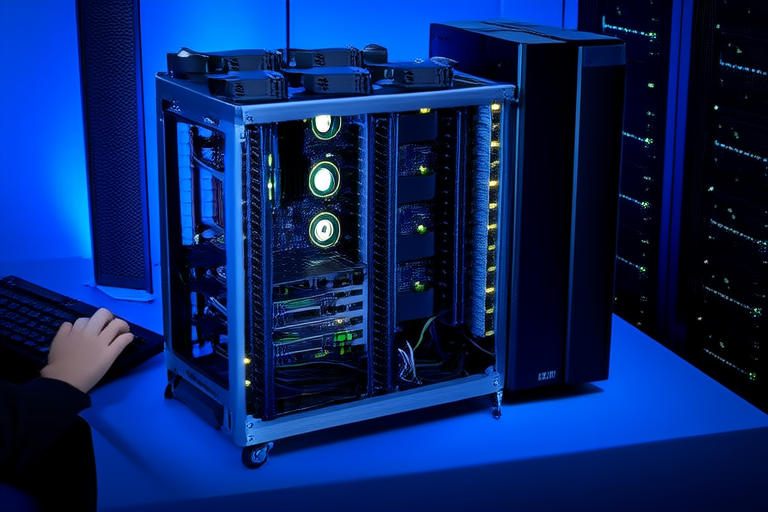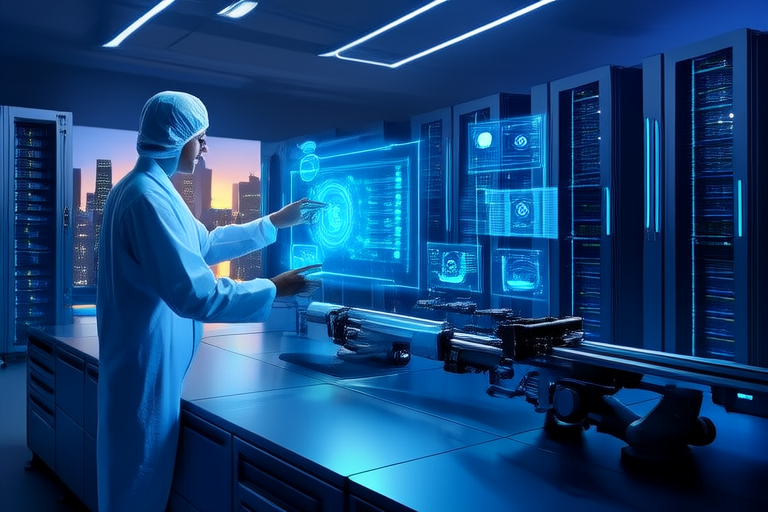“`html
The Future is Now: How AI is Reshaping Various Markets
Introduction
Artificial Intelligence (AI) has rapidly grown from a niche technology to a transformative force across numerous industries. Once confined to science fiction, AI now plays a pivotal role in reshaping sectors ranging from healthcare to entertainment. This article explores how AI is revolutionizing various markets, offering insights into its applications, benefits, and future potential.
In this piece, we will delve into several key areas where AI is making significant impacts, including healthcare, finance, retail, manufacturing, transportation, education, and entertainment. By examining these sectors, we aim to provide a comprehensive overview of AI’s current influence and its projected trajectory.
Healthcare
AI is revolutionizing healthcare through advanced diagnostic tools, personalized medicine, and improved patient care. Predictive analytics enable early disease detection, while robotic surgeries enhance precision and reduce recovery times. Telemedicine platforms powered by AI facilitate remote consultations and monitoring, making healthcare more accessible.
For instance, IBM Watson Health uses machine learning algorithms to analyze vast amounts of medical data, assisting doctors in diagnosing complex conditions. Similarly, Google’s DeepMind Health is developing AI systems capable of interpreting medical images with high accuracy. These innovations not only improve patient outcomes but also streamline healthcare operations.
Finance
The financial sector has embraced AI to enhance fraud detection, automate algorithmic trading, and optimize customer service. Chatbots powered by natural language processing (NLP) handle routine inquiries, freeing up human agents for more complex tasks. AI-driven risk assessment models help banks and insurance companies make informed decisions about lending and underwriting.
Examples include JPMorgan Chase’s COiN (Contract Intelligence), which automates contract review processes, saving time and reducing errors. Additionally, fintech startups leverage AI to offer personalized financial advice via mobile apps, democratizing access to sophisticated investment strategies.
Retail
AI is enhancing the retail experience through personalized recommendations, efficient inventory management, and optimized supply chains. Personalized marketing campaigns driven by AI algorithms increase customer engagement and loyalty. Virtual assistants like Amazon’s Alexa and Apple’s Siri assist shoppers in finding products and making purchases.
Augmented reality (AR) technologies allow customers to visualize products in their homes before buying them, improving satisfaction rates. For example, IKEA Place app enables users to place virtual furniture in their rooms using AR, providing an immersive shopping experience.
Manufacturing
AI is transforming manufacturing processes through智能制造(smart manufacturing)、供应链优化(supply chain optimization)和个性化推荐(personalized recommendations)。智能制造利用AI技术实现生产过程的自动化和智能化,提高生产效率和产品质量。供应链优化通过分析大数据来预测需求,优化库存管理,降低运营成本。个性化推荐则通过分析消费者行为数据,为制造商提供定制化的解决方案。
例如,西门子的MindSphere平台利用物联网(IoT)和AI技术,帮助制造商实时监控设备状态,预测维护需求,从而减少停机时间。此外,通用电气(GE)的Predix平台也采用了类似的AI技术,用于工业互联网的应用场景。
Transportation
AI is driving innovation in transportation with applications like autonomous vehicles, logistics management, and intelligent traffic systems. Autonomous vehicles, such as those developed by Tesla, promise safer and more efficient travel. Drones operated by companies like Amazon deliver packages directly to consumers’ doorsteps.
In China, smart city projects integrate AI into traffic control systems, reducing congestion and improving safety. These advancements not only enhance convenience but also contribute to sustainability efforts.
Education
AI is transforming education through personalized learning platforms, automated grading systems, and virtual tutors. Platforms like Coursera and Khan Academy use AI to adapt lessons to individual learners’ needs, ensuring better comprehension and retention. Automated grading systems speed up feedback cycles, helping students improve faster.
EdTech startups are developing innovative solutions that combine gamification with AI to create engaging learning environments. These technologies foster creativity and critical thinking skills essential for future careers.
Entertainment
AI is revolutionizing the entertainment industry through content generation, virtual reality (VR), and augmented reality (AR). Streaming services like Netflix employ sophisticated recommendation engines to suggest movies and shows tailored to each user’s preferences. VR games offer immersive experiences that blur the line between digital and physical worlds.
HBO Max utilizes AI to assist in content creation, analyzing viewer behavior to inform programming decisions. These developments enrich consumer experiences while opening new avenues for creators.
Conclusion
AI is undeniably reshaping multiple markets, offering unprecedented opportunities for growth and efficiency. From healthcare to entertainment, AI’s applications span a wide range of industries, each benefiting from enhanced capabilities and insights provided by this cutting-edge technology.
As AI continues to evolve, it holds immense potential for further advancements. Embracing these changes can lead to significant improvements in productivity, quality of life, and innovation across all sectors. Readers are encouraged to stay informed about ongoing developments in AI and consider how they might apply these technologies within their own fields.
“`




